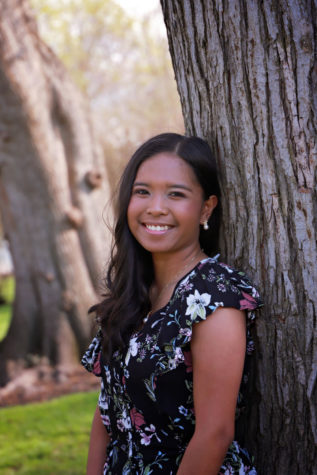TRIO program supports students in all areas of life
$1.375 million grant to provide career development, graduate school services; program provides free tutoring, advising to scholars

Staff at WSU Pullman’s TRIO Student Support Services program support first-generation students, as well as those from lower-income families and students with disabilities.
September 20, 2020
A first-generation student described her college experience as a rollercoaster ride.
But with the support of WSU Pullman’s TRIO Student Support Services program, she is able to navigate through higher education as a mother and student.
“When TRIO says that they really focus on the students, they really focus on them to make sure that they succeed,” said Alejandra Carranza, sixth-year architectural studies and civil engineering double major.
Carranza gave birth to her first child last year during midterms. She said TRIO staff helped her contact WSU’s dean of students so professors knew about her situation. TRIO staff also accompanied her at the hospital.
“They were there in the birthing room with me, coaching me,” she said. “I did not know what was happening, so they were talking me through everything while I was there.”
Carranza’s partner, who is a TRIO member, received support from TRIO staff as well. She said the staff helped her partner prepare for graduation and do interviews, which helped him land a job as an engineer.
“I am beyond grateful for the fact that I was able to meet such a wonderful group of people because honestly, I feel like, by myself, being a first-gen, it’s very challenging managing college, let alone being a mom and working,” she said.
With the support of a five-year $1.375 million grant from the Department of Education, WSU Pullman’s TRIO program aims to continue helping students like Carranza succeed in various aspects of their lives, said Angela Klimko, director of WSU Pullman TRIO SSS.
TRIO SSS supports first-generation students, as well as those from lower-income families and students with disabilities. Its purpose is to help its scholars overcome barriers in higher education, she said. The grant will be used to focus on students’ career development and pathway to graduate school.
Klimko said the program offers a variety of services, including tutoring, study abroad, and academic and career advising, all of which are free to TRIO scholars. TRIO staff stay in the program for years so they are able to provide consistent support for students throughout their entire undergraduate education.
“We are really invested in each scholar on such an intimate level that we know what they need, and they express that,” she said.
Gabrielle Lund, junior wildlife ecology and conservation sciences major with a minor in forestry, said she enjoys meeting with her TRIO adviser. Before the pandemic, she would often visit her adviser during drop-in hours to discuss anything from financial aid to professional development.
“I had a lot of difficulties with my financial aid my freshman year,” Lund said, ”so TRIO was instrumental in helping me navigate where all the different food pantries were on campus, who I need to talk to about scholarships and financial aid.”
She said the TRIO program is grounded in a family-centered atmosphere. TRIO staff make the time and effort to get to know each student that comes into their program.
As a first-generation student, Lund did not know how the higher education system works. She said TRIO helped her transition from high school to college.
“For first-generation students, we don’t know what we don’t know, so there’s a lot of gaps in knowledge that I had about university,” Lund said.
The TRIO program also helped with Amanda Carey’s transition to WSU. Carey, sophomore forestry major, said the program’s advising appointments helped her understand the nuts and bolts of higher education.
“No matter who you are, what your background is, they’re extremely welcoming and willing to help,” Carey said.
Because of COVID-19, TRIO’s services are being conducted virtually. Klimko said the virtual environment gives the program opportunities to meet more easily with students.
The program is also using Zoom to invite guest speakers, Klimko said. It uses virtual programming to help students prepare for graduate school and meet graduate faculty and advisers. Prior to the pandemic, TRIO had to get permission to use the grant money for traveling purposes.
“Now we can just send students to all these great virtual events and professional development conferences that in the past, we wouldn’t have been able to do because of the costs of travel, the time,” she said.
Klimko, a TRIO alumna herself who has been working with the program for about 13 years, said she only had a ninth-grade education when she attended Walla Walla Community College. She was a single mom and attended college later in her life. She said WWCC’s TRIO program helped her succeed.
At its core, the TRIO program encourages students to start where they are and build a foundation to achieve their goals. Klimko said TRIO’s involvement in students’ lives does not end when they graduate.
“It’s truly TRIO for life,” Klimko said. “We’re definitely a TRIO family. That includes our scholars. We follow them throughout their life.”








